Search Images
Browse Content (p. 1172)
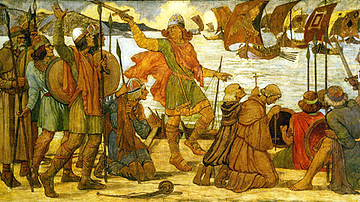
Image
The Vikings in Dublin.
Artist's depiction of the landing of a Viking fleet at Dublin in 841. They are known to have built a naval fort (longphort) there at least by 841 and overwintered there for the first time in 841-842.
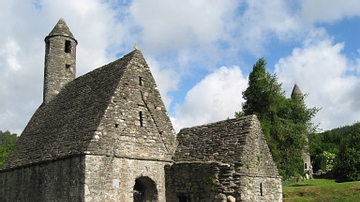
Image
St. Kevin's Church, Glendalough
St. Kevin's Church found at the monastic site of Glendalough, Ireland. It dates from the 12th century CE, although the site itself is older and was founded in the 6th century CE. During the Irish Viking Age this site was frequently raided...
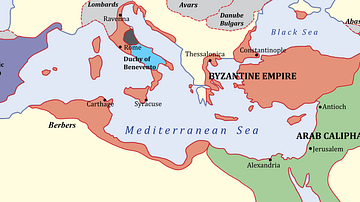
Image
The Byzantine Empire, c. 650 CE.
A map indicating the extent of the Byzantine c. 650 CE during the reign of Constans II (641-668 CE).
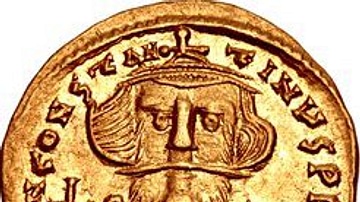
Image
Constans II
A gold nomisma coin depicting Byzantine emperor Constans II (r. 630-668 CE). (Classical Numismatic Group, Inc. http://www.cngcoins.com)
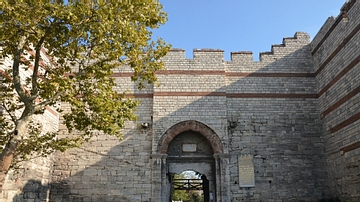
Image
Gate, Theodosian Walls
One of the ten gates of the Theodosian Walls of Constantinople, completed c. 413 CE.
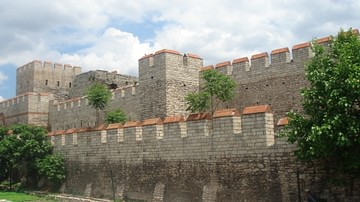
Image
Theodosian Walls
A restored section of the Theodosian Walls of Constantinople, completed c. 413 CE.
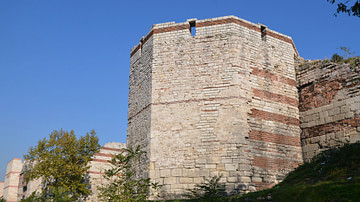
Image
Tower, Theodosian Walls
A tower and section of the Theodosian Walls of Constantinople, completed c. 413 CE.
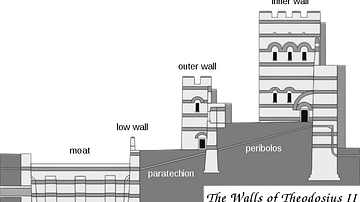
Image
Cross-section of the Theodosian Walls
A diagram showing a cross-section of the Theodosian Walls of Constantinople, completed c. 413 CE.
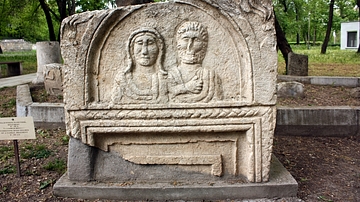
Image
Tombstone from Abritus
1st-2nd century CE tombstone found in the remains of the ancient Roman city of Abritus, modern-day Razgrad, Bulgaria.
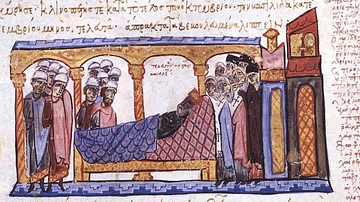
Image
Dying Constantine VII
A 12th century CE illustration of Byzantine emperor Constantine VII on his deathbed (r. 945-959 CE). From the Madrid Skylitzes. (National Library, Madrid)